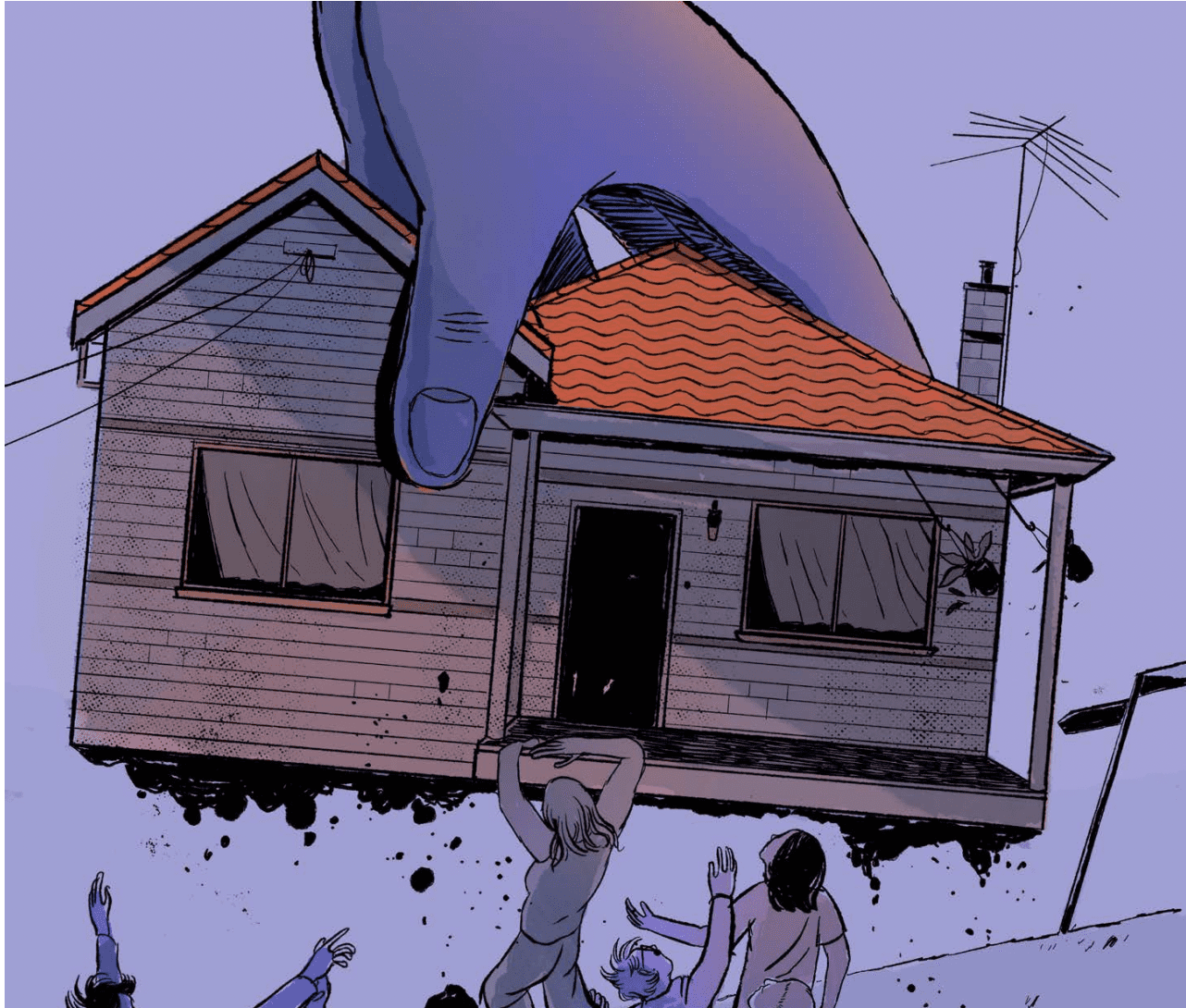What if Honi Soit died? Perhaps it should be dead already.
I think one of the defining balancing acts which marks the Honi editorship is the extent to which Honi platforms the anger, worries and joy which marks the collective experience of students. The way editors have, for 94 years, managed this balancing act is why this — for all other purposes, quaint — newspaper has the influence it does.
We are often criticised for being too negative, but what is the point of Honi if it is not.
Students and those marginalised by society have been struggling for years trying to survive in a profoundly inequitable housing market. As this edition’s feature (p. 12) hopes to address, this is because the voices of young people are systematically ignored. The manifestations of the housing crisis are so varied, but pieces exploring the exploitation of international students (p. 14), and the lifeless state of student housing at USyd (p. 14) attempt to bring some of those effects to light. If Honi were not to give expression to this anger and frustration, nobody else would.
But students are not passive actors in this crisis, as seen in the phenomenon of subletting (p. 16). Honi is a place where this agency can be expressed.
But sometimes, amidst all of this, we want to ponder Captain Hook, and the mysteries of McDonald’s menus (both p. 23). That’s valuable too.
This edition will hit stands days before the state election. May the Liberals be put out of power for a long long time (p. 7). Honi has the privilege of sharpening the political consciousness of the student body in every edition, but particularly this one. Fortunately, students were willing to share their opinions on the poor state of the major parties’ housing policies (p. 10), on Labor’s commitment to Treaty (p. 11), and on the Conservatorium of Music’s funding by the state government (p. 8). Read and critique these articles. Go to the polling booth knowing that young people’s votes matter.
It is easy editing Honi to feel the pressure to be original, to better the editorial teams before you, to keep Honi alive. These competitive instincts are deeply held — drilled into us since we were children, by the competitive process by which we come to edit, and by our love of this paper.
But I hope in this edition to let this pressure go. To let students speak, vent, dream. As long as Honi keeps on doing that, I think it will be alright.





